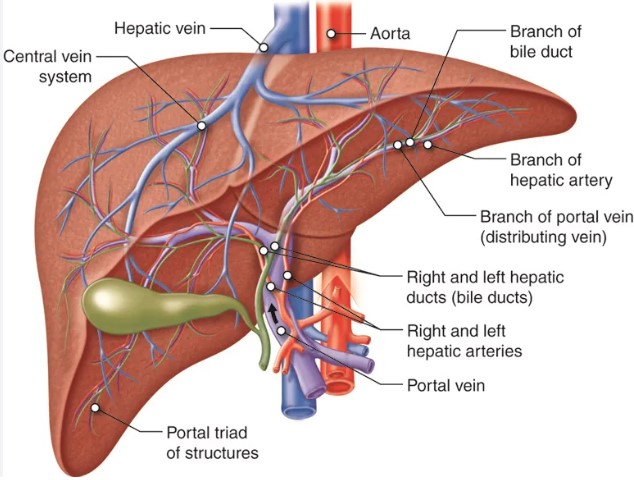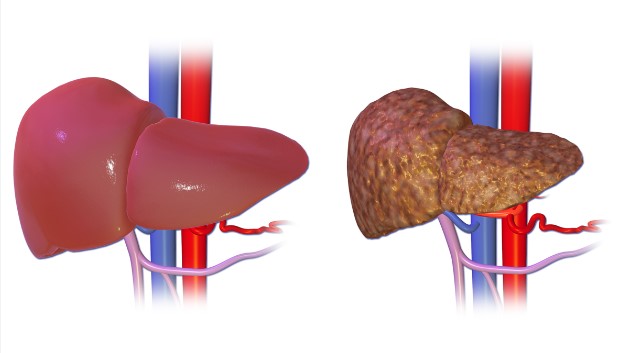A large and powerful body organ, Liver performs hundreds of tasks related to metabolism, energy storage, and waste filtering. It plays a key role in digesting food, converting it to energy, and storing the energy until you need it. When your doctor refers to liver disease, they’re usually referring to chronic conditions that do progressive damage to your liver over time. Let us know more about liver diseases.
Types of Liver Diseases
There are many types of liver diseases. Some can be genetic while others are caused by viruses or other illnesses, or by toxins, such as drugs or alcohol.
Hepatitis
An inflammation of the liver, Hepatitis can cause liver damage, making it difficult for your liver to function as it should. Few types of Hepatitis are as follows:
1.Hepatitis A- Typically, Hepatitis A can spread through contact with contaminated food or water. Its symptoms may clear up without treatment, but recovery can take a few weeks.
2.Hepatitis B- This form of hepatitis can spread through bodily fluids, such as blood and semen. It can be acute (short-term) or chronic (long-term).
3.Hepatitis C- This disease can also be acute or chronic, and often spread through contact with blood from someone with hepatitis C.
4.Autoimmune hepatitis- This disease is caused by your own immune system. Due to some reason, your own immune system begins to attack your liver cells, causing damage.
Alcohol-associated liver disease
This is an umbrella term for liver diseases caused by too much alcohol consumption.
Alcohol-associated fatty liver- Too much consumption of heavy alcohol, can cause Alcohol-associated fatty liver. Even though your liver breaks down alcohol, if you drink too much, especially over a long period, your liver cells become damaged.
Alcohol-associated hepatitis- This form of hepatitis damages the liver cells and causes inflammation. You can suffer from alcohol-associated hepatitis, if you have alcohol-associated fatty liver disease and you continue to drink alcohol.
Alcohol-associated cirrhosis- The most serious alcohol-associated liver disease, Alcohol-associated cirrhosis, makes it difficult for the liver to work properly.
Nonalcoholic fatty liver disease- When there is too much fat inside your liver, Nonalcoholic fatty liver disease (NAFLD) happens. The excessive fat can inflame your liver.
Liver cancer
First, liver cancer develops in your liver. Hepatocellular carcinoma, the most common type of liver cancer, tends to develop as several small spots of cancer in your liver, though it can also start as a single tumor.
Causes of Liver Diseases
Infections- Viral infections that become chronic can cause chronic hepatitis, including hepatitis B and C.
Alcohol-induced hepatitis- The use of heavy alcohol can cause acute or chronic hepatitis. It can cause cirrhosis and liver failure, if it goes on long enough.
Toxic hepatitis- Acute or chronic hepatitis can be caused by chronic overexposure to toxins such as industrial chemicals or drugs.
Non-alcohol related fatty liver disease- Obesity, high blood sugar and high blood lipids can cause excess fat storage in your liver, which can cause inflammation (non-alcohol related steatohepatitis).
Autoimmune conditions- The presence of Autoimmune conditions can cause chronic inflammation and scarring in your liver or your bile ducts.
Inherited metabolic disorders- Some disorders can cause toxic products to build up in your blood, and can damage your liver.
Cardiovascular diseases- Those conditions that affect blood flow to and from your liver, can cause chronic liver damage.
Symptoms of Liver Diseases

You cannot always see or feel symptoms of liver disease. Still, common symptoms can include:
- Jaundice
- Pain in belly and swelling
- Swelling in ankles and legs
- Itchy skin
- Dark urine
- Pale stool
- Constant tiredness
- Vomiting or nausea
- Loss of appetite
- Bruising easily
Treatment for Liver Diseases
Depending on what type of disease you have, liver diseases can be treated. However, there is one thing that is recommended regardless of the type: Don’t take any medications or supplements that break down in your liver. Some of them can include:
- Acetaminophen
- Statins, used to lower cholesterol
- Comfrey tea
- Some dietary or vitamin supplements, such as weight loss products
Other general treatments can include Corticosteroid medications, like prednisone, which reduce inflammation in the liver, also, Immunosuppressant medications, which keep your immune system from attacking healthy tissue.
Medicines for Hepatitis
Now, there are antiviral drugs that can help treat hepatitis C. You have to take these medications for up to 12 weeks, and if they’re successful, the virus goes away. For hepatitis A or B, there is no cure.
However for hepatitis A, taking care of yourself, resting, and eating well can be helpful.
When it comes to Hepatitis B, it goes away on its own for many people, with care and rest, but some get chronic hepatitis B. If this happens, there are some antiviral medications that can slow down the disease and reduce the risk of liver cancer.
Your doctor may refer you for a liver transplant, if your liver is too damaged.
Home Remedies For Liver Diseases
Even though, there is no home remedies for liver diseases, but your doctor may recommend making changes to your diet to help your liver stay as healthy as possible, even if you already have liver disease.
Diet for liver diseases
Generally, recommendations for a liver disease diet includes limiting food and drinks that can strain your liver. This includes:
- Milk, meat, eggs
- Salt
- Foods high in sugar and fat
- Alcohol
If your doctor recommends, you can also include foods like:
- Fruit
- Vegetables
- Legumes (black beans, chickpeas, kidney beans, etc)
- Chicken
- Fish
- Grains like barley, brown rice, quinoa etc.
You can also ask your doctor about vitamin supplements too.
FAQs
Do viral infections can cause liver diseases?
Yes. Viral infections that become chronic can cause chronic hepatitis, including hepatitis B and C.
How can I identify that I have liver diseases on my own?
If you have itchy skin, dark urine, pale stool, constant tiredness and loss of appetite, you could be suffering from liver diseases.
Is Hepatitis A curable?
No, Hepatitis A is not curable. However, taking care of yourself, resting, and eating well can be helpful. Normally, it goes away on its own.
Visit Home Page

